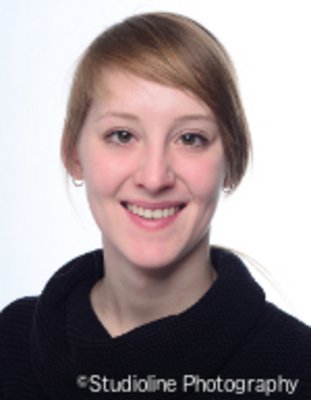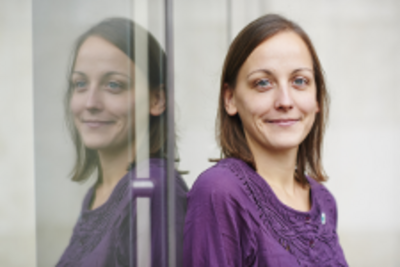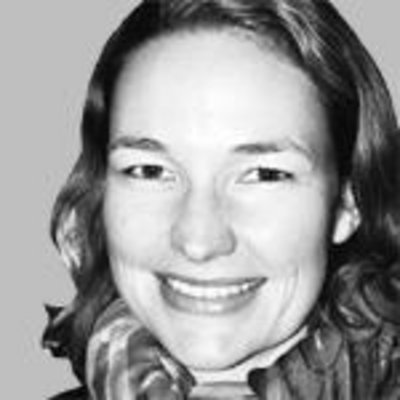Bewerbungen
TeilnehmerInnen
Wir w
Philipp Voß
Philipp Voß is an economist with focus on climate and energy policies. His current research includes methods for carbon pricing, decarbonisation strategies and renewable energy sources. In the Post-Carbon Cities of Tomorrow (POCACITO) project, which supported EU cities at the transition towards a “post carbon” society, he summarized the main results in a synthesis booklet. Before joining Ecologic Institute, Philipp Voß worked at the German Development Institute (GDI) and at ewi Energy Research and Scenarios (ewi ER&S). At the GDI, he focused on international fairness and cooperation aspects of climate change and helped at developing the NDC Explorer, which now became the main online tool to compare national climate action plans (NDC’s) submitted under the Paris Climate Change Agreement. At ewi ER&S, he was involved in a variety of modeling approaches for the EU electricity and gas markets and wrote his master thesis on strategic investments in natural gas infrastructure.
Caroline Gotsche
Caroline Gotsche is a medical doctor and research assistant at the Institut for General Medicine at the Charité Universitätsmedizin Berlin. She is currently establishing a programme for Global Health at her institute and delivers lectures for medical students on HIV, one of her core areas. She is very intrigued by the role of Primary Health Care in achieving Health for All. Previously, she used to work in General Practice and Internal Medicine in Berlin. Furthermore, she holds an MSc in ‘Control of Infectious Diseases’ from the London School of Hygiene and Tropical Medicine. Since her master's project on HIV Self-Testing, she is engaged in HIV diagnostics and prevention. She is continuing her research on HIV in Zambia to date.
Jürgen Scheffran
Jürgen Scheffran is a Professor for Integrative Geography at the University Hamburg. He is leading the research team „Climate Change and Security“ at CLISAP Cluster of Excellence, focussing on security issues of climate change and connected conflicts and opportunities for cooperation. At the Centre for Earth System Research and Sustainablity his core theme is the investigation on energy security and energy landscape in the nexus of water, food and migration in the context of climate change. In the field of international security he is working on issues of disarmament and armament policy of nuclear weapons, missiles and space armament. He also active as a member of the board of the Federation of German Scientists, a scientists initiative aswell as the International Network of Engineers and Scientists for Global Responsibility.
Rebecca Gibbs
Rebecca is a trained nurse with an MSc in social policy from the London School of Economics who now works at the Centre for Sustainable Healthcare. She has Whitehall and UK Parliamentary policy experience in sustainable development, including time as a sustainability policy advisor in the UK Department of Health. Before working in policy Rebecca spent time as a community worker in London and has lived in two eco communities in the south of England and in Spain.
Nader Talebi
Nader Talebi was born in Iran and received his B.Eng in software engineering from Iran University of Science and Technology in 2006. Working as a volunteer and activist with Afghan refugees and labouring children in Tehran, he became more interested in social science. As a result of his activism, he continued his studies in sociology. In 2010, Nader graduated from Allameh Tabatabai University of Tehran with an MA in sociology. His thesis was on the relation of child labour and social reproduction of social class. Nader Talebi is a PhD candidate in the Department of Sociology at Lancaster University with a background in software engineering. He is currently writing his thesis on the state power and revolution in Iran with Prof. Bob Jessop. Nader Talebi teaches at Humboldt University of Berlin since 2015 and works as a researcher at Berlin Institute of Migration and Integration Research (BIM). His seminar is on spaces of migration and refugee situation in Berlin. His research interest comprises State Theory, State Space, Migration, Historical Sociology, Political Sociology, Cultural Political Economy, Strategic-Relational Approach, and the Middle East modern history of Iran.
Adi Vyas
Adi Vyas MBBS MPH is a public health doctor from Australia with a strong interest in global health, sustainable development, and medical education. He is currently a Medical Advisor at the Ministry of Health (Sydney, Australia) and Lecturer at University of Bergen (Norway). Adi works with several public health practice and academic collaborations, including: the Sustainable Healthcare Education Network (UK); Public Health Educators in Medical Schools (UK); Medical Peace Work partnership (Europe), and the Australasian Faculty of Public Health Medicine.
He is a co-author of Medical Peace Work case studies exploring climate change and health.
Lisa Göldner
Lisa Göldner is a graduate student in Environmental Policy and Planning and holds a B.A. in Political Science. She has been working for GenderCC – Women for Climate Justice since 2015 and for genanet – focal point gender, environment, sustainability since 2014. Previously, she had been employed by LIFE e.V. and the Environmental Policy Research Centre (FFU) at Freie Universität Berlin.Lisa’s major field of research and interest are gender equality and social justice in (international) climate governance and energy transformation processes. As a representative of GenderCC she is regularly attending the international climate negotiations under the UNFCCC. Lisa is one of the co-founders of GeNaWerk, a network for young researchers on gender and sustainability. As a long-term environmental activist she has taken part in numerous non-violent direct actions in Europe and North America.
Patricia Bohland
Patricia Bohland holds a master degree in political science. When she started to study at Freie Universität Berlin she got quickly in contact with political and environmental activists in the city. As part of Young Friends of the Earth Germany (BUNDjugend) she started to teach young students in climate related issues and became herself an environmentalist. Soon she also got in touch with the topic of gender as one dimension of climate justice. This way she learnt about her current employer GenderCC – Women for Climate Justice e.V. and first got involved in the network´s work as an intern in 2012. In her master thesis she analysed the gender dimensions of the implementation of the clean development mechanism (a financing instrument for mitigation projects under the UNFCCC) and its impacts on gender justice.Currently, Patricia is mainly working on gender related issues in urban climate policies and participates regularly at the UNFCCC conferences.
Sarah Hurtes
French born and South African raised, Sarah has lived in several countries working in the intergovernmental/humanitarian sector and journalistic field. She completed a Master's degree in Development, Gender and Globalisation at the London School of Economics. Sarah has had various communications roles within different institutions, including coordinating campaigns whilst working for the Organization for Security and Cooperation in Europe. She also worked on global outreach strategies for the European Women's Audiovisual Network in Paris and NGO Gender Links in Mauritius. Her love for investigative writing motivated her to freelance as a journalist in India and Nepal. Before joining the European Climate Foundation (ECF), Sarah was asked to participate in COP21 as a Communications consultant for the United Nations Entity for Gender Equality and the Empowerment of Women. Sarah now leads the work on climate and health for ECF's strategic communications network.
Julia Gogolewska
Julia Gogolewska got involved in public health issues when joining the Health and Environment Alliance (HEAL) in 2012. For HEAL she is leading the European umbrella organisation's work on climate and energy topics. Her work champions the health benefits of phasing out coal in power generation, as well as from other climate action. Julia is passionate about making climate change a topic of everyday conversations in all areas of life, and about sharing positive visions about a climate resilient future. Before joining HEAL, Julia worked for an Africa-EU energy partnership, studied the social determinants of attitudes towards climate change in Hannover, did research on forest land use rights in India and was engaged in environmental campaigning as a volunteer with various groups.
Manfred Treber
Manfred Treber started working as a Senior Adviser Climate/Transport with Germanwatch e.V. in Bonn in 1995. He has participated in all Conferences of the Parties (COP) of UN FCCC since COP 1 in Berlin (1995) and was an Expert Reviewer for several Special Reports and Assessment Reports of the Intergovernmental Panel on Climate Change (IPCC) with working areas climate science, transport and CCS. Since May 2012, he has been Co-Coordinator of a Working Group of the worldwide network CAN (Climate Action International), now of the Working Group "Second Science Review". From August 2011 on, he has been Member of the Advisory Body of CO2 Geological Storage Europe (CGS Europe) and later of CO2GeoNet. Furthermore, he became a member of the board of the Working Group on Engery Issues of the German Physical Society in April 2006. Between 1992 until 1994, he had been Scientific employee (Field: Energy) with the secretariat of the Enquete-Commission "Protecting the Earth's Atmosphere" of Deutscher Bundestag (German Parliament) in Bonn. Manfred Treber holds a Masters in Physics (Dipl.-Phys.) (1987) and a PhD in Economics (Dr. rer. pol.) (1993).
Katja Frieler
Katja Frieler holds a Diploma in Mathematics of the University of Bielefeld and a Ph.D. in “Physics of the Atmosphere” of the University of Potsdam. As Ph.D. student she worked at the Alfred-Wegener-Institute for Polar and Marine Research (AWI, Potsdam) on chemical modelling of polar stratospheric ozone losses. Before joining the Potsdam Institute for Climate Impact Research (PIK) in July 2008 she was a Post-Doc at the Department of Biostatistics and Clinical Epidemiology, Charité, University Medicine Berlin. She is deputy chair of PIK’s research domain II on climate impacts and vulnerabilities and head of PRIMAP research group (Potsdam Real-time Integrated Model for probabilistic Assessment of emissions Paths). In addition she leads the cross-sectoral science and coordination group of the Inter-Sectoral Impact Model Intercomparison Project (ISIMIP, www.isimip.org). Her research is focused on extreme events.
Peter Tinnemann
Dr. med. Peter Tinnemann is physician and health researcher at the Charité Universitätsmedizin Berlin with particular interest in social medicine, access to health care and health in a globalizing world. He holds a Master degree in Public Health from Cambridge University and has more than 10 years work experience with various international humanitarian aid organisations, e.g. Doctors without Boarders (MSF). In 2012 he found the association "Certified Medical Independence" training doctors in rational drug therapy.
Alex Rosen
Dr. med. Alex Rosen is a pediatrician in Berlin and member of the executive board of IPPNW Germany. His main focus within IPPNW lies on the abolition of nuclear weapons and the global phaseout of nuclear energy. His poster exhibition "Hibakusha Worldwide" deals with the intrinsic connections between the military and civil branches of the nuclear industry and their impact on the environment and public health – from uranium mining to nuclear power plants, nuclear weapons and ultimately nuclear waste and radioactive fallout. His main argument regarding climate change is that a true, global energy revolution is needed to avert climate disaster and that this can only be achieved with a complete phaseout of fossil and nuclear energy generation and joint efforts to promote energy efficiency, energy conservation and 100% renewable energy generation.
Eva-Maria Schwienhorst-Stich
Eva-Maria Schwienhorst-Stich, MD, DTMPH, MScIH has worked in paediatrics and clinical tropical medicine and currently works for the German Leprosy and TB Relief Association (DAHW), an NGO with medical and social projects for vulnerable populations in 20 countries, where she is responsible for the medical projects in four South American and four Asian countries. Since 2006 she is the Deputy International Councillor of the German affiliate of IPPNW. She has interned at the Centre of Peace Studies at McMaster University in Canada, where “Peace through Health” had been developed and is a member of the working group of Medical Peace Work (MPW) and has lately co-authored several case studies for the teaching of issues around MPW and Global Health.

















